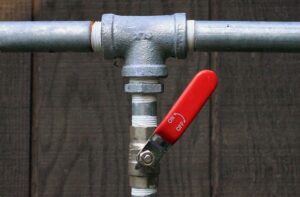Dealing With Sewage Backups During Winter: What Should You Know?
 Most homeowners assume that they won’t be dealing with sewage backups during winter. That’s why the presence of black water in their plumbing lines seems like a rude awakening.
Most homeowners assume that they won’t be dealing with sewage backups during winter. That’s why the presence of black water in their plumbing lines seems like a rude awakening.
In our experience, colder weather holds as much threat to trigger black water back up as the other seasons. It might occur due to blockages, faulty sewage lines, frozen septic systems, and anything else that disrupts the sewage flow.
Luckily, our sewage backup clean-up services are available throughout the year and at all hours. You can give us a call for immediate remediation to protect your property and family from severe water damage and health risks.
Continue reading this guide to learn how to mitigate sewage overflows in winter.
The Causes: Why Are You Dealing with Sewage Backups During Winter?
Common causes of sewage backups are linked with drainage systems, household habits, and sewage maintenance more than the weather. It’s why black water flooding in homes can occur during winters, just like any other season.
Primary reasons include:
- Stoppages and blockage caused by frozen septic systems
- Faulty and broken pipelines caused by excessive wear and tear
- Leaks in the drainage system and waste line
- Clogs inside sewer vents
- Stoppages caused by obstructive items that are washed down the sink or flushed down toilets
- Defective sewage line installation and incorrect design
- Blockages caused by overgrown tree roots that infiltrate the sewage system
Understanding why these incidents happen can help you minimize the risk of significant water damage. You can either call consultants for help when you notice trouble or take steps to limit the danger.
The Red Flags: When Should You Call Us for Help?
Sewage overflows leave a trail of destruction in their wake. Not only do they compromise the structural integrity of your property, but they also put your family at risk.
The icky, black water backup contains various impurities and toxic substances. These include biohazards like viruses, bacteria, and other toxins that contaminate the air. Prolonged exposure may lead to health issues.
Therefore, professional intervention becomes a necessity when you’re dealing with sewage backups during winters (or any other season). Although most sewage line issues occur underground, it is easy to detect a potential problem up above.
They are as follows:
- Slower drainage in showers, sinks, and toilets
- A foul stench emitting from drains
- Unusual gurgling sounds might emerge from water drains and toilets during use
- Overflowing toilets, sinks, and clogs within the pipeline
Instead of ignoring these minor inconveniences, you should consult a home restoration expert specializing in sewage backup clean-up services.
How Can Our Home Restoration Specialists Help?
At 911 Restoration of Antelope Valley, we offer non-obligatory home inspections to assess the problem and develop a mitigation plan. Our cautious evaluation and individualized strategies can prevent an imminent catastrophe, saving your home and belongings from severe water damage.
Our backup clean up services include:
- Proper black water backup removal with industry-grade air dryers and suction pumps
- Advanced drying and dehumidifying techniques to eliminate all traces of moisture
- Professional sanitizing and deodorizing treatment to remove harmful contaminants and sewage smells from affected areas
- Repairs and replacements to reverse signs of structural damage
Asides from this, we tackle associated issues like water damage and mold growth. We are keen on providing cost-effective services. That’s why we accept insurance coverages if your homeowner’s insurance policy covers property loss.
The Checklist: How to Prevent Sewage Overflows?
Sewage backups are more dangerous and problematic than regular types of water damage. It’s why you should be more vigilant about evading them. There are numerous ways to achieve this goal, not only in winter but throughout the year.
Here are a few tips that can help:
- Prevent snow from building up in your sewer vents
- Adopt better disposal habits (like throwing away greasy, oily food down the silk and hard-to-grind waste materials in your garbage disposal).
- Stop flushing non-biodegradable items (i.e., baby wipes, tampons, sanitary supplies) down the toilet
- Test and maintain your sump pump regularly to ensure it functions properly throughout the year
- Winterize your plumbing lines and sewer systems through insulation and reconstruction to prevent pipes from freezing
- Fix minor leaks and pipe issues as soon as possible
- Avoid planting trees near the sewer line to limit root obstruction
In short, limit clutter from accumulating in your drain lines and schedule routine maintenance checks to ensure everything works smoothly. These steps can allow you to address potential sewer backup problems long before they escalate.
Parting Words
Dealing with sewage backups during winters isn’t an easy feat. 911 Restoration of Antelope Valley makes things easier with our IICRC-certified training and specialized equipment. You can trust our team to get to the source of the plumbing problem and resolve issues effectively. Our quick-thinking, customized solutions and industry-approved practices lower health risks.
More importantly, they keep your home safe and free from sewer backup-related deterioration in the long run.
Looking for local sewage backup clean-up services? Call (661) 401-7303 to contact 911 Restoration of Antelope Valley for assistance. You can even drop an online request for a free home inspection.



